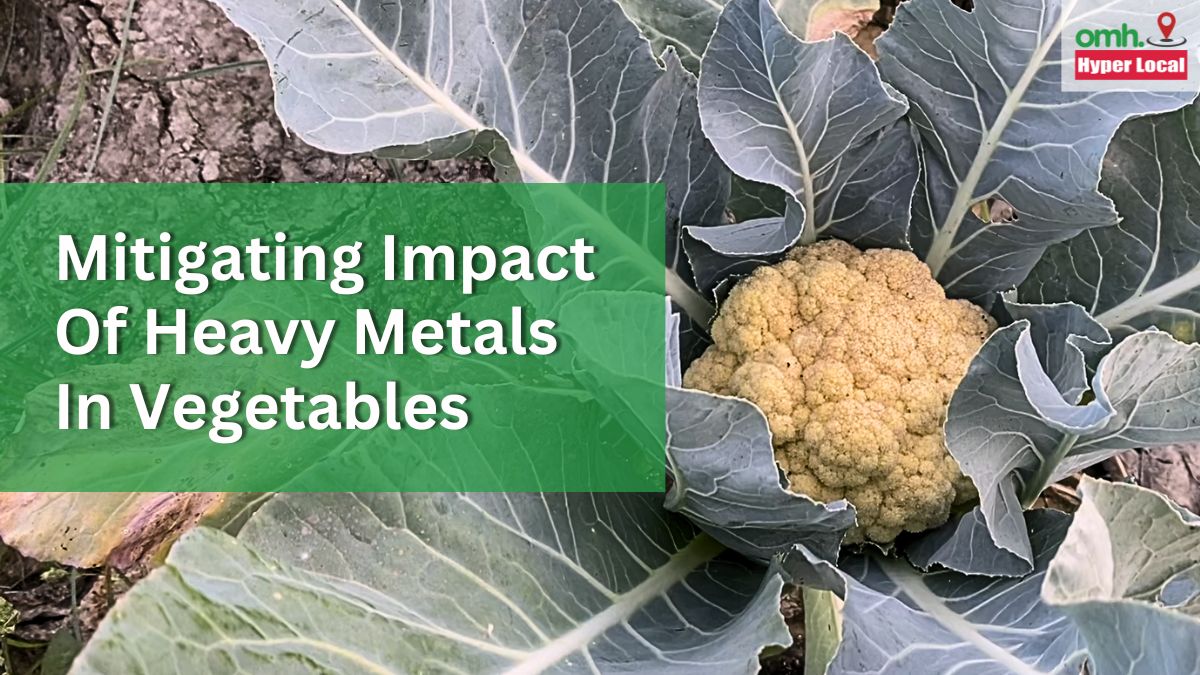
In the last story in this new series by the Onlymyhealth team under the #OMHHyperLocal Campaign, the team uncovered the heavy metals found in vegetables being sold in Delhi markets, and the dire effect these vegetables can have on the health of those consuming them. As per the team's investigation, the vegetables are grown on Yamuna Bank in Delhi and are irrigated and washed using the toxic water of the Yamuna River.
Table of Content:-
A recent study by the University of Technology and Applied Sciences revealed that 80% of Delhi's urban and industrial waste is dumped into the Yamuna River. The water in the river is not safe for birds, fishes, animals, or even bathing, let alone to irrigate the vegetables that are being consumed daily by the residents of Delhi.
The team's investigation is ongoing to figure out the reasons why such vegetables are being sold openly in the markets and why proper checks are not in place to mitigate their sale. Meanwhile, the team spoke to Dr Manjusha Agarwal, Senior Consultant, Internal Medicine Gleneagles Hospitals Parel, Mumbai and Dr Tarun Sahni, Physician, Internal Medicine, Indraprastha Apollo Hospital, New Delhi, to learn what measures can help consumers mitigate the side effects of heavy metals in the vegetables they are eating.

How To Treat Vegetables To Avoid Heavy Metals
After getting the vegetables collected from the Yamuna Bank tested in a lab, the reports revealed the presence of Cadmium, Nickel, and Lead. These three heavy metals can lead to a host of health issues like neurological disorders, heart problems, and even cancer.
Both experts agreed that the first step towards mitigating the impact of these vegetables is to wash them properly.
How To Wash Vegetables?
Dr Sahni suggested, "Take water in a pot, add a little vinegar, and put the vegetables in. Let the vegetables sit for a while so that if there are any heavy metals in them, they can interact with the vinegar and come out of it. And after removing it, wash them with fresh water once or twice."
Talking about ways to wash the vegetables, Dr Agarwal recommended:
- Ensure to soak the vegetables in a mixture of water and vinegar. The acidic properties of vinegar will allow you to get rid of the heavy metal residue.
- When it comes to greens or vegetables, gently rubbing them with a soft brush can also be helpful.
- A mixture of water and baking soda can be used to wash the vegetables.
How To Cook Vegetables?
"Cooking techniques such as steaming or boiling in water can further reduce the presence of metals, making the vegetables safer to eat," said Dr Agarwal.
Dr Sahni added, "If we overcook the vegetables, there's a possibility that their vitamins will get reduced. But a partially cooked meal is better than eating vegetables raw because it can help you avoid heavy metal poisoning. So consume your vegetables after cooking them."
Also Read: Onlymyhealth Presents #OMHHyperLocal: Scrutinising The Safety Of Vegetables Grown On Yamuna Bank

Dietary Measures To Reduce the Impact Of Heavy Metals
Beyond cooking and washing your vegetables, both experts also suggested some dietary measures that can help you reduce the effects of heavy metals in the produce you are consuming:
Eat Antioxidants
Dr Agarwal said, "Eat foods high in antioxidants such as apricots, asparagus, beets, broccoli, cantaloupe, carrots, bell peppers, and kale to tackle the effects of free radicals on the body."
However, Dr Sahni pointed out, "When it comes to dietary measures, there are things called antioxidants. Antioxidants are found in fruits and vegetables also. But here in fruits and vegetables, we have a little doubt that there are no metals in it. So, you can opt for dry fruits like almonds, walnuts, cashews, pistachios, and raisins. They can prevent the possibility of heavy metal contamination."
Eat Fibres
Dr Agarwal suggested incorporating fibre like whole grains and legumes that will eliminate the heavy metals from the body.
Eat A Balanced Diet
Next, Dr Sahni suggested eating a balanced diet as it can help lessen the effects of heavy metals. He said, "Include enough protein from non-vegetarian sources and pulses. Also, include carbohydrates like potatoes and rice."
Consume Probiotics
Lastly, Dr Sahni suggested consuming probiotics. "Probiotics is a set of bacteria or bacillus which maintain the hygiene of our intestines," he said. He listed a few sources of probiotics:
- Probiotics are available as tablets.
- Some of the curds and milk come fortified with probiotics.
- There are small commercial preparations like Yakult which are also full of probiotics.
Addressing the presence of heavy metals in vegetables sold in Delhi markets is critical for public health. By implementing proper washing and cooking techniques, you can significantly reduce your exposure to these harmful substances. Experts also recommend consuming antioxidants, fibres, and probiotics to mitigate the impact of heavy metals on the body. Authorities must enforce stricter regulations and conduct regular checks to ensure the safety of vegetables in the markets. Together, consumers and regulators can work towards a healthier and safer food environment.
Also watch this video
How we keep this article up to date:
We work with experts and keep a close eye on the latest in health and wellness. Whenever there is a new research or helpful information, we update our articles with accurate and useful advice.
Current Version